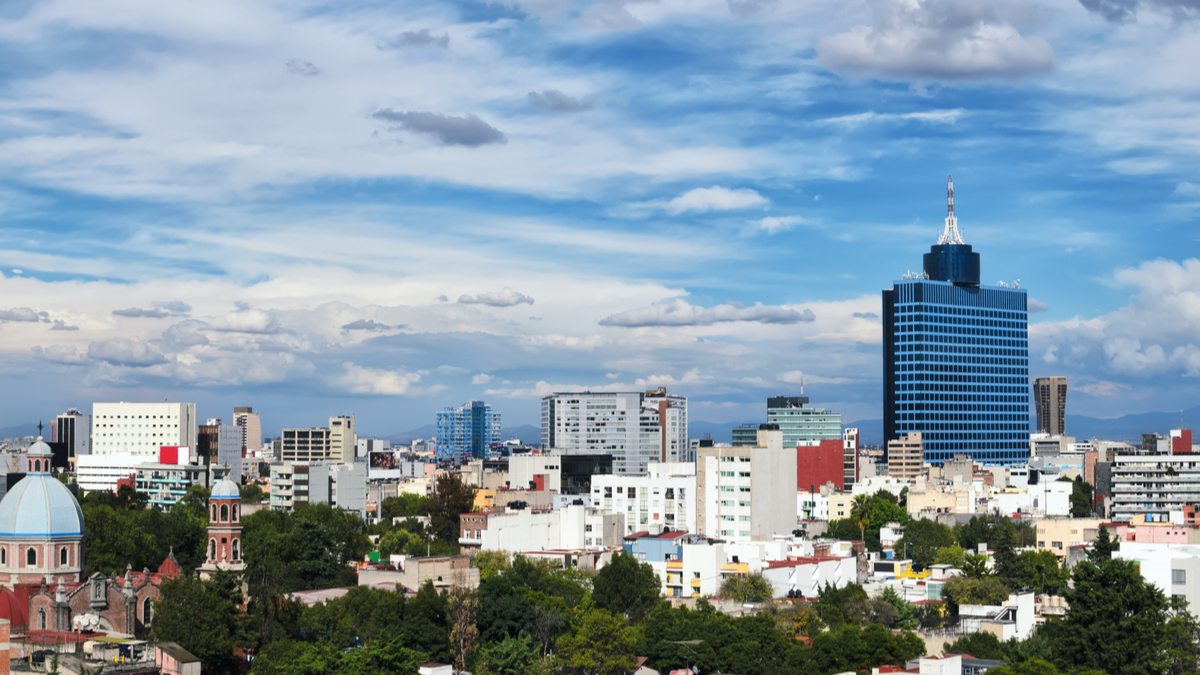Transferring your international driver's license to the US: step-by-step
Your full guide to updating your foreign driver's license to the US.

Many people dream about spending time in Mexico, whether it’s to retire in a warm climate or simply to experience a new culture. With the country right next to the US, it’s simple to reach and well set up for American real estate investors. Yet its cities are excitingly different, with the buzz of one of the world’s liveliest cultures and some breathtaking natural beauty on their doorstep. Given all this, it’s hardly surprising that the idea of settling down for good in Mexico attracts so much interest.
If you’re able to spend an extended period of time in Mexico, your thoughts may well turn to buying real estate there. It’s important to know the ropes, as there are some legal restrictions on what type of Mexican properties foreigners can buy.¹ These will vary depending on exactly where the property you’re looking at is situated. If you’re thinking about buying real estate in Mexico, you’ll need to be up to speed on how those rules work.
That’s where this article comes in. You’ll find an overview of what you need to know about investing in Mexican property, as well as a look at where to choose. We’ll summarize the costs involved in purchasing or renting in some of Mexico’s most popular cities, and we’ll also cover how you can finance your purchase if you decide the country is for you. There’ll also be information on how to stay away from high international transfer fees by taking advantage of services like Wise.
There’s quite a bit of variation in the cost of living between cities in Mexico. The capital, Mexico City, tends to have prices much higher than anywhere else. It’s the hub of the country’s economy and one of the most attractive places for foreign investors. Other cities can be much cheaper to buy in, so whatever your budget, you’ll be able to find property to fit your needs.
There are some places in Mexico where you won’t be able to purchase outright as a foreigner. Don’t worry, though, as you can easily hold real estate through a trust. This is very common and works in a similar way to how trusts can hold property for minors in the US. Lenders will want to see proof that you have the right to be in Mexico, too, so make sure your visas are in order. Regulations can change, so get specialist advice well before you start the actual purchase process.
To get you started, we’ve put together a summary of average buy prices across Mexico.² These figures are for one-bed apartments and are per square meter. The numbers are in Mexican pesos (MXN) and are rounded to the nearest peso.
| Area | City center | Outside of center |
|---|---|---|
| Mexico average | MXN 23,850 | MXN 15,660 |
| Mexico City | MXN 44,852 | MXN 27,032 |
| Tijuana | MXN 15,150 | MXN 9,483 |
| Puebla | MXN 14,500 | MXN 11,333 |
| Guadalajara | MXN 22,992 | MXN 19,648 |
| Ciudad Juárez | MXN 11,255 | MXN 6,500 |
It can really pay off to take a while to study costs in the cities you’re interested in. Rentals and purchases don’t always follow the same pattern, and the difference between central and suburban prices can be large or small. If you need to keep your costs down, it’s probably worth looking beyond Mexico City at some of the country’s other cities.
There are several things you’ll need to remember when buying an overseas property, and one of them’s that you’re likely to face fees and charges. There’s the little matter of finding a deposit, for a start. You’ll also probably have to pay for legal services, sometimes from abroad. That can make the costs mount up, as banks can often charge high fees for international transfers. You’ll even likely have to stump up for a markup on the exchange rate.
The good news is that there may well be ways to reduce your bill, such as using a specialist provider like Wise. You can use this to send money to Mexico, something you’ll need to be able to do when buying real estate. Transferring money with Wise is quick and easy, and the simple, low-fee setup means you could save a lot when compared with using a normal bank account.

In some circumstances, you may want to think about investing in rental property in Mexico. Buying real estate for this purpose can make a good investment. You’ll put yourself in line to get the capital gains from the property itself, if its value goes up. Plus, you’ll have the income you receive from rent payments.
Make sure you know the rules first. Mexico’s Constitution restricts foreigners from buying outright in certain areas. These are within 100 kilometers (62 miles) of a national border, or within 50 kilometers (31 miles) of the coastline. Inside those distances, you’ll have to use a trust or Mexican corporation.³ Luckily, this restricted zone doesn’t cover Mexico City, but it’s still important to remember in some other areas. It’s important to get specialist advice from a Mexican real estate law professional before plunging in.
If you meet the criteria and decide to go ahead with investing in Mexican real estate, here are the kinds of rents you might expect each month.² We’ve covered several major cities and a variety of property types, to give you a better idea of what you’re in for. Prices are rounded to the nearest peso.
Instead of using a conventional bank transfer, you may want to think about having your tenant pay rent using Wise. You’ll avoid high fees and be dealing with a provider that specialises in cross-border payments. Your tenant will appreciate the simplicity of Wise payments, too, so it’ll be win-win all around.
If you’re thinking about getting a mortgage, the first thing you’ll need to do is check that you’re eligible.
As we mentioned above, if you’re buying within the restricted zone, you’re Constitutionally barred from owning property outright. That means you’ll need to go through a trust or a Mexican corporation. Thousands of Americans do this every year, and it’s not something to be afraid of. However, it’s very important that you get specialist advice before starting the process. Remember, the professional you select must be licensed to practice in Mexico – you can’t just use one based back home.
If you’re buying outside the restricted zone, things are simpler, as you’ll be able to purchase the property outright. Even so, don’t make the mistake of thinking you can handle everything yourself. There are still local laws and charges to be aware of, and the money you pay a Mexican real estate professional to handle this is a vital investment.
Historically, most Mexican property transactions used cash, and the widespread use of financing is a fairly recent phenomenon. It is possible to get a loan in pesos, but you may have to shop around. Again, make sure you consult a specialist. The loan process can be quite lengthy, with more checks than you may be used to, as foreclosures in Mexico are not straightforward. Because of that, lenders need to be absolutely sure your credit is good. You’ll need to make sure your paperwork is all in order. You’re likely to be asked to show:
You may want to investigate whether your bank in the US has an affiliate agreement with one in Mexico, as in some cases cross-border loans in US dollars are available. If you go this route, bear in mind that the loan value is usually restricted to $100,000 or 70% of the property value.⁴ You’ll need to provide the rest from another source. On the plus side, you’re likely to get a lower rate than with a peso mortgage.

Although like most countries, Mexico was hit by the 2008 global financial crisis, the effect on construction was less than in some other nations. In fact, construction output has remained fairly steady since the country emerged from a major crash in the mid-1990s.⁵ This lack of major peaks or troughs may make planning your investment a little easier.
Mexico City is by far the largest urban area in the country, with over 12 million people. Nowhere else even manages two million.⁶ It’s therefore not surprising that the capital is also the hub of construction activity.
The national government has made housing one of its priorities after stating that the country was seven million units short of where it should be.⁷ There has been an effort to ensure that this development is spread around the country’s major cities, rather than being concentrated in Mexico City. With a growth rate of around 5% maintained since 2014, there’s likely to be a lot more real estate springing up across the country in the near future.
It’s not hard to see why investing in Mexican real estate is so popular for Americans. It’s a country that’s quite familiar to many people in the US, yet fascinatingly different too.
Getting your paperwork in order is important, but so is being able to deal with financial matters like legal charges and deposit funds. Making international transactions can hit you in the pocket if you’re not careful, thanks to high transfer fees and poor exchange rates from banks. A specialist providers such as Wise could be a good alternative way to pay for real estate, with a really simple, low fee structure, plus the ability to move money between currencies at the mid-market rate.
Sources:
*Please see terms of use and product availability for your region or visit Wise fees and pricing for the most up to date pricing and fee information.
This publication is provided for general information purposes and does not constitute legal, tax or other professional advice from Wise Payments Limited or its subsidiaries and its affiliates, and it is not intended as a substitute for obtaining advice from a financial advisor or any other professional.
We make no representations, warranties or guarantees, whether expressed or implied, that the content in the publication is accurate, complete or up to date.

Your full guide to updating your foreign driver's license to the US.

Stretch your dollars when studying abroad, use Wise.

Everything you need to know about international schools in Manila, Philippines.

Selling property abroad? Check out our guide to maximize returns with these strategies from experienced tax specialists.

Understanding the best study abroad scholarship opportunities for US citizens.

Get ready to study abroad with our guide.